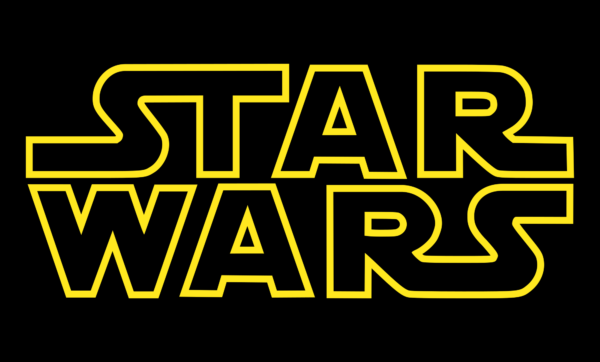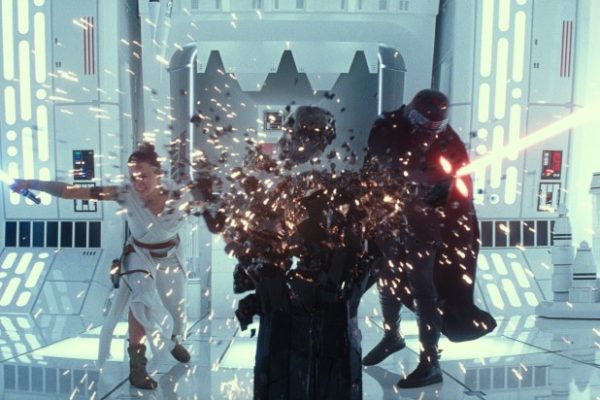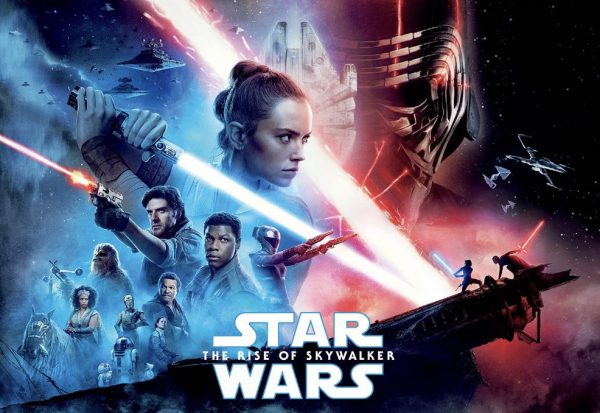Anghus Houvouras completes his analysis of the missed opportunities of the Skywalker Saga…
The following is a continuation of the thought process laid out in Part One: The Emancipation of Anakin where I suggest one minor pivot to Anakin’s core motivation;
The deep psychological scar of slavery. Every motivating factor from why he wants to become a Jedi to his eventual ideological conflict with his the Council should have revolved around his desire to end slavery. For the Jedi to break free of the bureaucracy of politics and the ‘will of the force’ to do what is right for all sentient being in a galaxy far, far away. You can read all of this in detail in Part One where I cover my confusion on why this established plot point wasn’t built on for dramatic effect and how it could have greatly improved the Prequels. Now, let’s move into Episodes IV, V and VI as well as dipping our toes into the new trilogy.
So in a world where this character motivation was used, how would it have impacted the Original Trilogy?
It doesn’t. Vader is still the villain. Luke and Leia are his children. Vader feels comfortable destroying all remnants of the Republic (including Alderaan and the Rebels) because they represent the values of a corrupt system that requires dismantling. Vader causes unimaginable suffering trying to bring order to the galaxy. He eventually turns on the dark side when Luke shows him that his goals, no matter how noble he believes them to be, have been corrupted by the dark side. He is now the very embodiment of oppression that he once (theoretically) fought so hard to end. Everything happens as is. You just have the added benefit of knowing that Anakin’s motivations for all these evil acts were based on a righteous ideology, which makes him a more complex, sympathetic and ultimately tragic character.
Rey Nobody
The terrible new trilogy could have beautifully spring boarded from this slight modification of motivation. We are introduced to Rey the same way as we were introduced to Anakin; she is an slave/indentured servant in the Outer Rim, which is still a lawless hellhole of unmitigated suffering. The set-up of Rey’s parentage is ultimately paid off horribly by the reveal from The Rise of Skywalker that she is a Palpatine. This makes the whole trilogy of trilogies about legacies and prophecies. It is no different from Game of Thrones: powerful families wielding power and ultimately fighting one another to decide who gets to run the galaxy.
If the prequel trilogies had been about Anakin’s struggle to bring order to a galaxy and free the slaves of the Outer Rim, the new trilogy could have echoed those same sentiments. The latest installments of the Skywalker Saga have Kylo Ren aka Ben Solo and the galaxy’s most nepotistic despot claiming he wants to ‘finish what Darth Vader started’. The truth, however, is that Rey ends up being the character that achieves that goal. A ‘slave’ from the Outer Rim discovers she has special abilities and ultimately ends up freeing all those enslaved by the empire giving them a freedom they have never known. Because of The Rise of Skywalker, Rey’s character is ruined and connected to a legacy character making it feel predictable and uninteresting.
J.J. Abrams introduced the very interesting idea that stormtroopers might rebel against the actions of their superiors. No longer clones but children indoctrinated into the ideology of the First Order (whatever the hell that actually was). Finn eventually becomes mortified by the murderous actions of Kylo Ren and decides to flee. Eventually, he works up the courage to fight for the resistance. This idea is revisited in The Rise of Skywalker with the impression that there are many stormtroopers who have thrown down their helmets in disgust and are now fighting for a righteous cause.
What if the new trilogy had been about the disenfranchised rising up to stop the First Order? A collection of nobodies and former stormtroopers devising a plan to stop Kylo Ren? Instead of carting out Lando Calrissian to get people to join the battle of Exegol, it was Rey and Finn giving hope to all those who felt like pawns in this never-ending battle between the Empire and the Republic. Finn could have been recruiting ex-stormtroopers instead of stumbling onto them and chasing macguffins. Rey could have ‘finished Vader’s work’ and gone to the Outer Rim to make a plea to those seeking to flee the reign of the First Order to instead, join the cause and fight.
Instead, we get familiar legacy characters, the descendants of legacy characters and the hint that some of our new characters might also be related to legacy characters, because ‘why the hell not’? Everyone important to these stories has to be somehow connected to someone else, because that is the twist in Empire Strikes Back; it is all about destiny, prophecy and how the only characters with the ability to affect change in this universe come from a specific lineage.
This narrow, lazy writing also comes into play with Rogue One, where we learn, that the person instrumental in getting the plans to the Death Star, is the daughter of the guy who designed it. What are the odds? Well, if you live in the Star Wars universe, the odds are ridiculously high. In the Star Wars universe, the vast majority of the heroes are born special and the major conflict comes down to them making a dyadic choice about whether to embrace the light side or the dark.
Generational legacies have always been a part of our culture and storytelling. The idea of being born into a role stems from thousands of years of societies based around hereditary succession. Kings who wield power because of their sovereign right to rule must give birth to equally (or more) powerful offspring who are willed to rule by God, and who are destined to be in positions of power because of their superior genetic code. Apparently, the same holds true in galaxies far away where a majority of heroes and villains are tied to previous generations of heroes and villains. The Star Wars universe suffers from the same basic issues of families wielding power as the characters in Game of Thrones. While there is great historical precedent for this storytelling, it is also lazy, like 8th season Game of Thrones lazy.
It is obvious, while watching The Last Jedi that Rian Johnson was trying to deviate into some more complex ideas. The Last Jedi however, had so many other problems that what he got right, i.e. diving into deeper, more complex social issues of a war economy, and exploring the struggles of identity-based roles, was washed away with what was wrong. Instead of developing the characters that J.J. handed him, he wasted time on new characters and created bad plots, which resulted in pivotal moments being handed to people we did not know or have any investment in.
Johnson set up an ending of The Last Jedi where the heroes were led by a castaway ‘slave’ and a former Stormtrooper fighting the grandson of the worst villain in the galaxy while trying to complete pop-pop’s legacy, whatever the hell he thought it was. We, however, end up with Rey Palpatine who learns that everything special about her came from Sheev’s sperm. At the end of the movie, she drops the name of one legacy character and takes on another. The entire universe has been reduced to ash and rubble by a multi-generational conflict between two families of super-powered assholes.
There is a big reveal in The Last Jedi that Rey is a nobody. She is the child of junk dealers who sold her for drinking money. It is one of several plot points, introduced by Rian Johnson, which holds the promise of taking the series into more interesting territory. Johnson introduces the idea that there are many force-sensitive people out there; people who could use that spark of rebellion to create a fire, which could burn down the First Order. Alas, Broom Boy was nothing more than the promise of what could have been if Lucas had made Star Wars about something. Johnson served up a perfect connection using the indentured servants of Canto Bight as a mirror to Anakin’s childhood as a slave. This connection could have been carried over into Episode IX and explored in more detail.
What bothers me so much about all these missed opportunities is that it is all right there on the page. Threads begging to be sewn together: former slaves, stormtroopers that abandoned their duty to fight for what is right and a young boy who grew up as a slave who would one day rage against the ‘heroes’ of this galaxy. Unfortunately, it never gets the kind of creative care to develop into an actual theme.
In Conclusion
The prequels were a product of George Lucas’ unchecked ego and massive success with the original trilogy. No one was going to push back on the guy who created this whole globe-spanning phenomenon so you end up with a lot of interesting ideas that feel half-baked and unchallenged. Lucas never had to go back to clean up his work. The new Star Wars trilogy and its creative conundrums were a product of corporate malfeasance and creative mismanagement.
Disney did not think they needed to put in the same kind of work Kevin Feige put into Marvel; i.e. world building and well-planned storytelling. They did not think that the story mattered. If they put out a Star Wars movie, people would come. They were right but without a coherent and planned narrative, they (like Lucas) ended up with a pile of ideas that never got enough attention or vetting. It was more important to hit specific release dates that take the time to plot out a realized three-movie saga.
Therefore, we end up with six of the nine Star Wars movies with gaping flaws and the promise of what might have been if anyone other than Rian Johnson had been interested in challenging the status quo. Alternatively, anyone could have looked at the scripts Lucas had created and used Anakin’s own origin story to give him a more understandable reason to betray the Jedi and those closest to him. They had this great tragic story but abandoned the most interesting aspect. It is like having Bruce Wayne’s parents murdered by a criminal and then have him become Batman because he wanted to bang hot chicks.
Anakin leaves his mother to become a Jedi. The reason behind that action should have been ‘to come back and free his mother’, not ‘to become the best version of myself’ or to fulfil a prophecy in which he had no investment. Every issue with the Prequels and the Sequel Trilogy comes back to writing and/or plotting. What makes it even more baffling is that everything they needed to do to tie this story together nicely was already in the script.
Anghus Houvouras



















